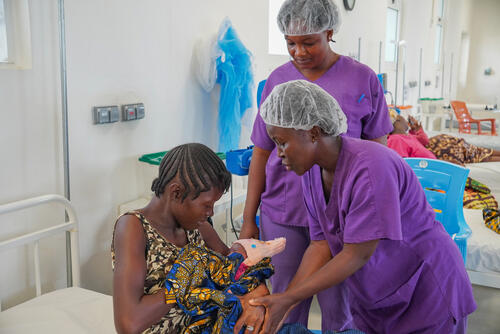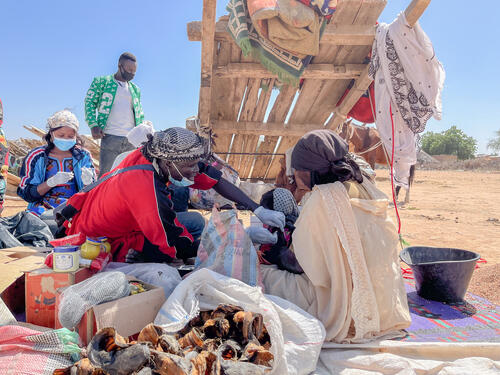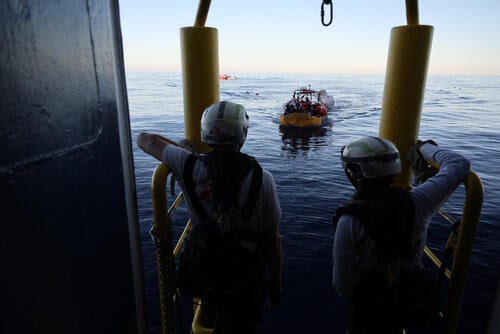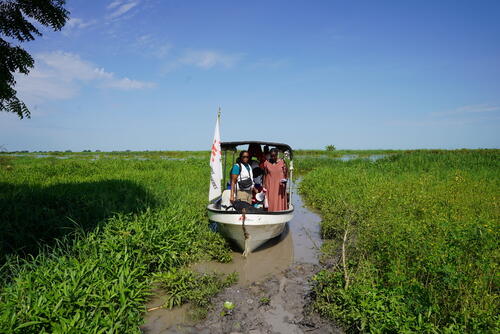In Sierra Leone, after the Ebola epidemic heavily affected the country’s healthcare workforce, the Médecins Sans Frontières (MSF) Academy for Healthcare was launched in 2018 to strengthen the skills and competencies of frontline healthcare workers, with the goal to have a long-term impact on the quality of care provided in healthcare facilities.
Sierra Leone remains one of the top ten countries with the highest maternal mortality rates in the world recording 354 deaths per 100,000 live births in 2023. With the objective to reduce these rates, MSF opened a hospital in Kenema district which started providing healthcare services to children in 2019 and pregnant and lactating mothers in 2022. The MSF Academy, through work-based learning programmes in clinical care, has refined the skills of healthcare workers in the hospital and clinics where our teams support, to foster a better quality of care for patients.
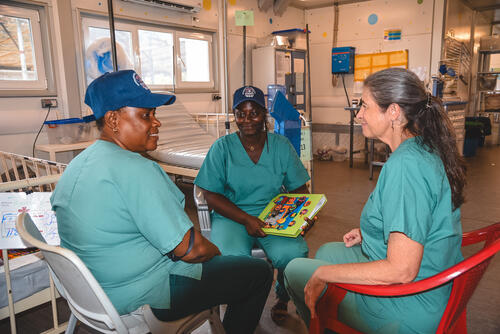
From 2018 to May 2025, the MSF Academy has trained 345 national healthcare staff in nursing care and ethical practices, infection prevention and control, patient assessment, supporting women during labour and delivery and surgical care. These curriculums were provided in broader programmes such as basic clinical nursing care, outpatient care, midwifery clinical care, operating theatre nursing care and community healthcare officer programmes. Theses trainings were done through competency-based curricula that are tailor-made using learning methodologies based on theoretical knowledge and workplace practice. The results of the assessments show an increase in participants' competencies, confidence, decision-making abilities, and the quality of care provided to patients.
“Changing our gloves after every procedure was something that the Academy revised with us and reinforced,” says Gbassa Josphine Jinnah, a nurse working in the in-patient department of the MSF hospital. She has completed the basic clinical nursing care programme at the MSF Academy.
“It was one of my dreams to be a competent nurse. I am very happy and proud of myself to have fulfilled and completed this training,” says Jinnah.

A unique approach that was implemented by the MSF Academy was the introduction of clinical mentors to coach the learners at a patient’s bedside. They observe the care deliverance given to the patients, assess knowledge gaps, as well as support the learners in delivering care. These mentors are often nurses and community health officers working in the hospital who were then upskilled to be trainers. This strategy proved to be very effective as both learners and clinical mentors are peers. The mentors deliver theoretical classroom sessions, bedside mentoring, competency gap assessments and teaching techniques that are often adapted for the learner.
“The clinical mentors and learners brought passion and desire to teach and learn,” says Randi Movich, MSF Academy pedagogical manager in Sierra Leone. “They work hand in hand, and it improved the learning environment.”
With the MSF Academy for Healthcare concluding its support in Sierra Leone, the 345 healthcare workers who upgraded their competencies will continue to play a key role in upholding high standards and delivering quality care to patients in Kenema district.



